- Home
- Bronwyn Scott
Portrait of a Forbidden Love--A Sexy Regency Romance
Portrait of a Forbidden Love--A Sexy Regency Romance Read online
The Rebellious Sisterhood
Female artists...taking their world by storm!
Artemisia, Adelaide and Josefina plan to break the mold the male-centric art world has placed them in. They each have ambitions and are willing to fight for their rightful place—they know their worth, even if society doesn’t.
From their base in Seasalter, Kent, the women use the only tool in their arsenal to have their voices heard: their paintbrushes. On their mission, might these rebellious women also find something they weren’t looking for—men to fight for and love them?
Join the sisterhood in the new trilogy
by Bronwyn Scott
Read Artemisia’s story in
Portrait of a Forbidden Love
And look out for Adelaide's and Josefina’s stories
Coming soon!
Author Note
The setting for Artemisia’s story is particularly exciting historically and in its relevance in modern-day discussion. London’s Royal Academy of Arts was founded in 1768, and two of the founders were women: Mary Moser and Angela Kauffman. However, when Mary Moser, who is referenced several times in Artemisia’s story, passes away in the spring of 1819, no move is made to replace her or Angela Kauffman with another female Royal Academician, despite female applicants being available. It is not until over one hundred years later that a female is elected an RA.
The first attempt to crack the resistance was in 1860. Laura Herford was the candidate, and you can read more about other stories on my blog (bronwynswriting.blogspot.com). Her attempt was unsuccessful. Men are on record as blatantly saying they didn’t want a “female invasion.” Annie Swynnerton does become the first female RA in 1922.
Artemisia is named after Renaissance painter Artemisia Gentileschi, who is well-known for her painting of Holofernes and Judith. I do parallel my Artemisia’s story with hers.
This is a story about liberation, not just Artemisia’s, which is center stage, but Darius’s, too, as he seeks to find his own power.
BRONWYN SCOTT
Portrait of a Forbidden Love
Bronwyn Scott is a communications instructor at Pierce College and the proud mother of three wonderful children—one boy and two girls. When she’s not teaching or writing, she enjoys playing the piano, traveling—especially to Florence, Italy—and studying history and foreign languages. Readers can stay in touch via Facebook at Facebook.com/bronwynwrites, or on her blog, bronwynswriting.blogspot.com. She loves to hear from readers.
Books by Bronwyn Scott
Harlequin Historical
Scandal at the Midsummer Ball
“The Debutante’s Awakening”
Scandal at the Christmas Ball
“Dancing with the Duke’s Heir”
The Rebellious Sisterhood
Portrait of a Forbidden Love
The Cornish Dukes
The Secrets of Lord Lynford
The Passions of Lord Trevethow
The Temptations of Lord Tintagel
The Confessions of the Duke of Newlyn
Allied at the Altar
A Marriage Deal with the Viscount
One Night with the Major
Tempted by His Secret Cinderella
Captivated by Her Convenient Husband
Visit the Author Profile page
at Harlequin.com for more titles.
For HRC and anyone who has ever struggled to break free from their limitations. And for my two girls, may you always believe in yourselves and your dreams.
Contents
Chapter One
Chapter Two
Chapter Three
Chapter Four
Chapter Five
Chapter Six
Chapter Seven
Chapter Eight
Chapter Nine
Chapter Ten
Chapter Eleven
Chapter Twelve
Chapter Thirteen
Chapter Fourteen
Chapter Fifteen
Chapter Sixteen
Chapter Seventeen
Chapter Eighteen
Chapter Nineteen
Chapter Twenty
Chapter Twenty-One
Chapter Twenty-Two
Chapter Twenty-Three
Chapter Twenty-Four
Chapter Twenty-Five
Epilogue
Excerpt from Unexpectedly Wed to the Officer by Jenni Fletcher
Chapter One
Somerset House, London—December 1819
There was no more dangerous creature than a man when cornered by a woman, unless it was a group of them, all held at bay by a single female armed only with what was her due and unafraid to ask for it. Artemisia Stansfield stood before the assembly at the Royal Academy of the Arts, believing without reservation that she’d earned recognition as an academician. Unfortunately, she was the only one in the room who shared that opinion, a conclusion that was becoming more evident by the minute.
Benjamin West spoke from the presidential throne, his mouth a grim line set beneath the long straight line of his nose. ‘Miss Stansfield, you are probably wondering why the assembly has summoned you?’
‘If the summons is not to grant me status as a Royal Academician, then, yes, I do wonder.’ Artemisia held the man’s gaze, her own steady and firm. She would not allow them to mince words with her, as disappointing as those words might be. A knot of worry tied itself in her stomach—worry that she had misjudged the purpose for the invitation to the assembly’s December meeting. She had not thought it would turn out this way.
Was it only this morning she’d awakened jubilant, convinced that today would be the day she achieved her dream: earning the honour of signing RA after her name on her works, being allowed to instruct young artists as a visiting professor and to direct the development of art in England? She fought the urge to smooth the skirts of her forest-green ensemble, chosen carefully for confidence. She would not let them see her fidget as if West’s question made her doubt her right to stand here. She did not doubt. She would never doubt.
‘I am afraid we will disappoint you then, my dear Miss Stansfield.’ Was that pity in President West’s gaze? Benevolent patronising in his tone? How dare he condescend to her! Artemisia’s temper began to smoulder as the words came. ‘The Academy has rejected your nomination.’
She let that sink in. Really sink in. It meant her name had been put forward and it meant that not one person had offered a signature in support. Not a single man sitting here had moved to endorse her, men who had pretended to be her colleagues, men whom she’d thought had been her friends for years. Men whom she’d thought respected her. Her gaze swept the room, a defiant stare that spared no one in its scolding wake. A few of them had the decency to shift in their seats, others were not brave enough to meet her eyes. Damn them.
Only Darius Rutherford, the Viscount St Helier, art critic to the ton, met her gaze with an obsidian stare of his own. Her temper ratcheted another degree to a slow burn. St Helier was not a member of the Academy, but where he led others followed. One word from him and an artist could be launched from anonymity into fame, or quite the opposite. She’d rather he not be here to witness her defeat. He might do her more damage than any of the others put together.
It was no longer a case of ‘damn them’ but of ‘damn him’, with his dark eyes and darker hair that fell perfectly imperfect over one arching brow and that long, strong nose that ended just
above a firm mouth. His was a visage that was confident in its sense of superiority. How many times had she wanted to wipe that confidence off his face as he passed judgement at an exhibition, making and breaking careers with his words? She’d often wondered if those long, elegant hands of his had ever even held a paintbrush? Now the scrutiny of all that superiority was turned in her direction, assessing and waiting.
Waiting for what? A response? An outburst? For her to beg or to wither under the weight of the Academy’s judgement? Would he like that? Would he like to see her brought to her knees? He’d made no secret of his dislike for her in years past. She was not the sort of woman he approved of. In evidence of that, he’d never spent more than a handful of minutes in her presence, making it patently clear he preferred to rub elbows with a more traditional crowd. Whatever his dislike of her, though, he had yet to take that dislike out on her art. He didn’t effuse praise over her work—How could he? He didn’t understand it because he didn’t understand her—but neither did he condemn it. He ignored it. Perhaps today would be a turning point there and not for the better.
She let the enormity of the Academy’s refusal swamp her. Was their rejection just the beginning of the end? Would this signal the conclusion of her artistic career? What would people say about her? It suddenly seemed paramount that she make a response to Benjamin West’s verdict, that she not walk away. If she did, she’d be walking away from far more than just an appointment. It was also of great import that her response be even-toned, that it not be the rebuttal of a disappointed shrew.
It took an enormous amount of self-control to get the words out in cool, objective, professional fashion. ‘President West, I would like to remind the assembly of my credentials. I am already a Royal Associate of the Academy. I’ve been showing work at the Summer Exhibition since I was sixteen. I have even managed to take several prizes.’ Even over some of these other artists in the room. Just last year her portrait of Lady Basingstoke and her famed thoroughbred, Warbourne, had taken the top prize in the category, although she refrained from mentioning that at the moment. She didn’t want to risk wounding the manly pride in the room. ‘I am also an active, working painter under the age of seventy-five, one of the definitive requirements for consideration, I believe.’
The last cast a broad, seemingly inclusive net, a net she’d not thought to question until this moment. She’d been raised by an artistic father who’d not baulked at teaching both his daughters to paint. She’d grown up in an Academy that had two females as founding members at the time. She’d studied with one of them, Royal Academician Mary Moser, always believing there would be a place for her when the time came. Now, the time had come. Artemisia was twenty-eight and proven in her field. Where was that place? Was it not in this room with her colleagues?
‘A successful candidate for membership at this level must do more than merely satisfy requirements, as I am sure you understand.’ West’s gaze slid to the left to elicit support from the Academy’s long-time secretary, Henry Howard. In the silence, Artemisia felt what was to have been her triumph, her moment, slip away. How had it come to this?
She’d been so sure of her reception, so sure of the logic of the Academy accepting her nomination. She was still sure of it, why weren’t they? Didn’t they see that the timing was right, that she was the ideal candidate to fill Mary Moser’s vacancy in so many ways? ‘I do more than meet the requirements, sir,’ Artemisia contested boldly. If they’d expected her to accept their decision meekly, they were wrong. She would not let this go without a fight. ‘I studied with Mary Moser, I am the daughter of Sir Lesley Stansfield, a respected artist in his own right. Who better to carry the torch of Mary’s legacy than a former pupil and a woman who understands what it is to be a female artist in a male-dominated field?’
Her tenacity had not won her any points with West or with others in the room. There were a few coughs of disbelief at her bold display of argument. From his seat, St Helier, with his dark eyes, met her gaze with a frank look of consideration, but his words were for the room at large. ‘I was unaware we’d become a debating society.’ Nervous chuckles followed from men uncertain how to take the comment. Was the scold for them or for her?
Artemisia refused to be intimidated, whatever St Helier’s intentions were. Something moved in his dark eyes. Had he been intending to help her? Warn her that she went too far? Or was he like so many other men she knew who treated women as invisible objects not entitled to their opinions? Her gaze returned to West. ‘Then tell me, what qualifications did I lack? In what way did my portfolio not satisfy?’ He could not answer because there was no answer. She had satisfied in all ways except in meeting one unwritten requirement: she was not male. Some time between 1768 with the founding of the Academy and now, that had begun to matter.
‘We feel your art needs time to mature,’ West said with a clearing of his throat. ‘We would like to see more painting from you, something unique, something we haven’t seen before. We are tabling the consideration of your membership until the meeting in March. We are giving you a probationary period to prove yourself.’
‘Probation? What has these last twelve years been then if not probation? Isn’t that the function of the associates’ pool?’ Artemisia interrupted. ‘To create a collection of artists from which future academicians can be drawn? I, sirs, have already served my probation. My father—’
‘Your father is the only reason we are even having this discussion, Miss Stansfield,’ West cut in swiftly. Whatever benefit he’d been willing to give her in the form of pity or condescension was gone now. She’d pushed him too far and he had his own face to save in front of his peers. ‘It was your father who put your name forward in the nominating book. It is out of respect for him that we have invited you here today to have this discussion at all.’ He made it sound as if the council was granting her a great and tolerant boon in allowing her to stand before them, which they might be. Not even the two female founding members, Angelica Kauffman and Mary Moser, had been allowed to attend meetings on account of their sex. They were represented only by two portraits hung on the wall. Artemisia had not thought of it as exclusionary before. She did now. ‘You know, Miss Stansfield, your invitation is not usual protocol for a candidate who has been refused.’
No, it wasn’t usual protocol, but she did see what it was protocol for. Her temper went to full boil. She was no longer interested in comporting herself calmly. She was being made an example of in a very public way so that no other woman would try for such lofty status. They would make her request into a scandal while other male candidates were simply notified privately that their membership was not successful. There was no public shaming of them. Some might even try again later for membership.
She glared at West. ‘What do you think you will see in March that I have not shown you in twelve years?’ The standards of her probation were vague, which no doubt suited the council quite well, but suited her not at all. It was a moving target. Why was she surprised by this turn of events? A man had betrayed her trust before. Why wouldn’t others? Why had she thought it would be different? She swept the council with a final challenging stare. ‘I do hope whatever you think to see in March isn’t a penis, because I don’t think I can grow one by then. Good day, gentlemen.’
* * *
What an unnatural woman she was! From his seat near the President’s throne, Darius watched the exchange with something akin to appalled amazement, unable to look away like a bystander caught in the throes of horrified wonder as a disaster played out before their eyes. She reminded him of her namesake, the Renaissance painter, Artemisia Gentileschi, an unconventional firebrand of a woman if ever there was one. There wasn’t a meek, repentant, subordinate bone in Miss Stansfield’s body even when such characteristics would serve her in good stead. Not that such characteristics would have served her today. They would only have made West’s job of dismissing her easier.
There’d been nothing easy about
Artemisia Stansfield. Darius had never heard a woman speak like that publicly in his entire life. He’d never seen a woman look like that either—at least not one that wasn’t a whore or an actress. The ‘look’ was something indefinable in itself. It wasn’t her dress—that was impeccable and above reproach with its high lace collar and tight, lace-trimmed cuffs peeking out from beneath the green jacket of her ensemble. But unlike so many women in London, Artemisia Stansfield was more than her clothes. No, ‘the look’ was all that dark hair piled in unruly curls on her head, that direct, piercing grey gaze that showed no modesty, no deference even in defeat, and that mouth which gave no quarter. Darius would not have wanted to have been West for all the salt in the sea.
The uproar that met Miss Stansfield’s departure was immediate the moment the door shut behind her. He was not the only one who couldn’t believe such shocking behaviour. ‘It’s why we don’t want women in the Academy to start with,’ Sir Aldred Gray said beside him with staunch authority as if he himself didn’t keep a mistress in Piccadilly. There were other comments that ran in a similar vein. They were not kind, but they were also not untrue. The Academy was dominated by males and now with the two female members gone, this was the moment to solidify that maleness behind the message that these higher echelons of the Academy were for males only. Did Miss Stansfield already guess that? Surely she could not be surprised by such a decision. The Academy wasn’t the only institution to be restrictive on female membership. In fact, he couldn’t think of one that wasn’t. Miss Stansfield was an associate, she should content herself with that, applaud herself for achieving that much.
And yet, something whispered in the back of his mind—would he be content with that? Would he settle for being told what he could or could not achieve no matter the level of his talents? He had settled once. He’d always regretted it. It was the only time he’d ever been told no and likely the only time he ever would be.

 Seduced By The Prince's Kiss (Russian Royals 0f Kuban Book 4)
Seduced By The Prince's Kiss (Russian Royals 0f Kuban Book 4) Tempted By His Secret Cinderella (Allied At The Altar Book 3)
Tempted By His Secret Cinderella (Allied At The Altar Book 3) The Secrets of Lord Lynford
The Secrets of Lord Lynford The Confessions of the Duke of Newlyn
The Confessions of the Duke of Newlyn The Passions 0f Lord Trevethow (The Cornish Dukes Book 2)
The Passions 0f Lord Trevethow (The Cornish Dukes Book 2)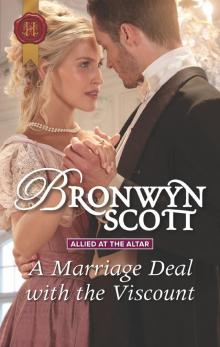 A Marriage Deal with the Viscount--A Victorian Marriage of Convenience Story
A Marriage Deal with the Viscount--A Victorian Marriage of Convenience Story One Night with the Major
One Night with the Major The Passions of Lord Trevethow
The Passions of Lord Trevethow Grayson Prentiss's Seduction
Grayson Prentiss's Seduction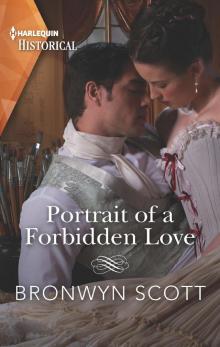 Portrait of a Forbidden Love--A Sexy Regency Romance
Portrait of a Forbidden Love--A Sexy Regency Romance Innocent in the Prince's Bed
Innocent in the Prince's Bed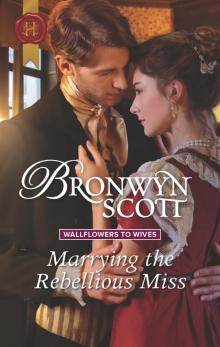 Marrying the Rebellious Miss
Marrying the Rebellious Miss Prince Charming in Disguise
Prince Charming in Disguise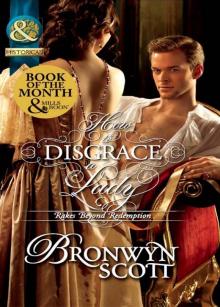 How to Disgrace a Lady
How to Disgrace a Lady Secrets of a Gentleman Escort
Secrets of a Gentleman Escort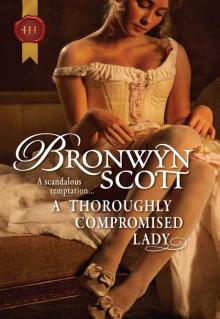 A Thoroughly Compromised Lady
A Thoroughly Compromised Lady Rake Most Likely to Seduce
Rake Most Likely to Seduce Compromised by the Prince's Touch
Compromised by the Prince's Touch Playing the Rake's Game
Playing the Rake's Game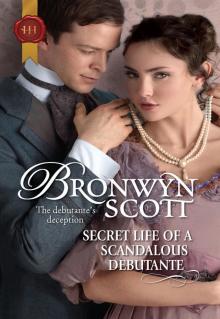 Secret Life of a Scandalous Debutante
Secret Life of a Scandalous Debutante Reckless Rakes - Hayden Islington
Reckless Rakes - Hayden Islington Breaking the Rake's Rules
Breaking the Rake's Rules Arabian Nights with a Rake
Arabian Nights with a Rake Unbefitting a Lady
Unbefitting a Lady Unbuttoning the Innocent Miss (Wallflowers to Wives)
Unbuttoning the Innocent Miss (Wallflowers to Wives) London's Most Wanted Rake
London's Most Wanted Rake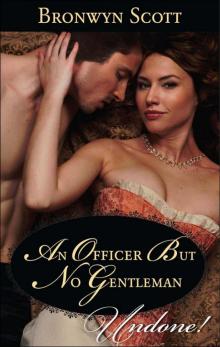 An Officer but No Gentleman
An Officer but No Gentleman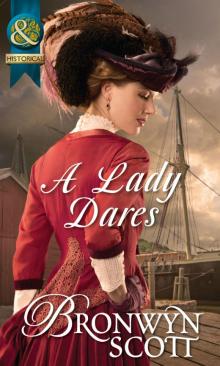 A Lady Dares
A Lady Dares A Most Indecent Gentleman
A Most Indecent Gentleman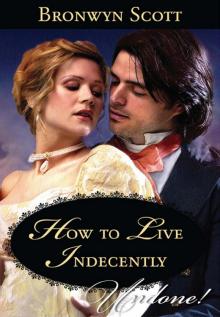 How to Live Indecently
How to Live Indecently Rake Most Likely to Sin
Rake Most Likely to Sin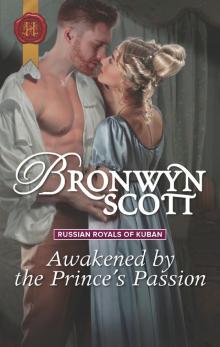 Awakened by the Prince's Passion
Awakened by the Prince's Passion Bronwyn Scott's Sexy Regency Bundle
Bronwyn Scott's Sexy Regency Bundle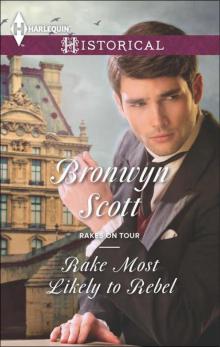 Rake Most Likely to Rebel (Rakes On Tour Book 1)
Rake Most Likely to Rebel (Rakes On Tour Book 1)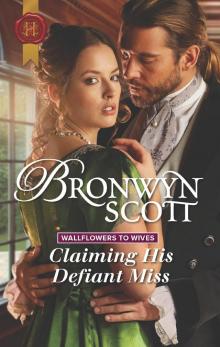 Claiming His Defiant Miss
Claiming His Defiant Miss Playing the Rake's Game (Rakes Of The Caribbean Book 1)
Playing the Rake's Game (Rakes Of The Caribbean Book 1)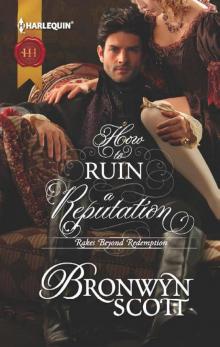 How to Ruin a Reputation (Rakes Beyond Redemption)
How to Ruin a Reputation (Rakes Beyond Redemption)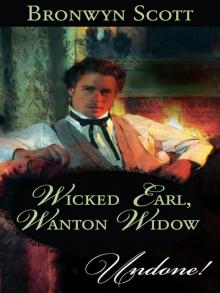 Wicked Earl, Wanton Widow
Wicked Earl, Wanton Widow Seduced by the Prince's Kiss
Seduced by the Prince's Kiss